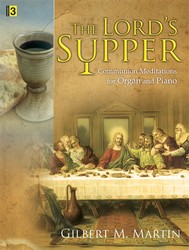- |
User Links
Divine Majesty

Eternal Power! whose high abode
Author: Isaac WattsPublished in 227 hymnals
Printable scores: PDF, MusicXMLAudio files: MIDI, Recording
Representative Text
1 Eternal Power, whose high abode
Becomes the grandeur of a God,
Infinite lengths beyond the bounds
Where stars revolve their little rounds:
2 Thee while the first archangel sings,
He hides his face behind his wings;
And ranks of shining ones around
Fall worshipping and spread the ground.
3 Lord, what shall earth and ashes do?
We would adore our Maker too!
From sin and dust to thee we cry,
The great, the holy, and the high!
Source: The New English Hymnal #207
Author: Isaac Watts
 Isaac Watts was the son of a schoolmaster, and was born in Southampton, July 17, 1674. He is said to have shown remarkable precocity in childhood, beginning the study of Latin, in his fourth year, and writing respectable verses at the age of seven. At the age of sixteen, he went to London to study in the Academy of the Rev. Thomas Rowe, an Independent minister. In 1698, he became assistant minister of the Independent Church, Berry St., London. In 1702, he became pastor. In 1712, he accepted an invitation to visit Sir Thomas Abney, at his residence of Abney Park, and at Sir Thomas' pressing request, made it his home for the remainder of his life. It was a residence most favourable for his health, and for the prosecution of his literary… Go to person page >
Isaac Watts was the son of a schoolmaster, and was born in Southampton, July 17, 1674. He is said to have shown remarkable precocity in childhood, beginning the study of Latin, in his fourth year, and writing respectable verses at the age of seven. At the age of sixteen, he went to London to study in the Academy of the Rev. Thomas Rowe, an Independent minister. In 1698, he became assistant minister of the Independent Church, Berry St., London. In 1702, he became pastor. In 1712, he accepted an invitation to visit Sir Thomas Abney, at his residence of Abney Park, and at Sir Thomas' pressing request, made it his home for the remainder of his life. It was a residence most favourable for his health, and for the prosecution of his literary… Go to person page >Text Information
| First Line: | Eternal Power! whose high abode |
| Title: | Divine Majesty |
| Author: | Isaac Watts |
| Meter: | 8.8.8.8 |
| Language: | English |
| Copyright: | Public Domain |
Notes
Eternal Power, Whose high abode. I. Watts. [Praise to God.] This hymn supplies what the author called "The Conclusion," to his Horae Lyricae, 1705. It is in 6 stanzas of 4 lines, and is entitled "God exalted above all Praise." In 1743, J. Wesley included it, with the omission of stanzas ii., and the alteration of stanza i., line 3, of "length" to "lengths", and of stanza iii., line 1, from “Thy dazzling beauties whilst he sings," to "Thee, while the first archangel sings " (a change necessitated by the omission) in Psalms & Hymns, 1743, p. 66. In 1780 this version of the text was given in the Wesleyan Hymn Book, No. 307, and from the Wesleyan Hymn Book has passed into numerous collections in all English-speaking countries. According to Methodist usage Dr. J. Beaumont read the lines,
"Thee, while the first archangel sings,
He hides his face behind his wings,"
to the congregation in Waltham Street Chapel, Hull, on Sunday, Jan. 23, 1855; and during the singing of the second line he fell dead in the pulpit. The incident is given in detail in Stevenson's Methodist Hymn Book and its Associations, 1883, p. 225.
--John Julian, Dictionary of Hymnology (1907)
Tune
ROCKINGHAM (Miller)Edward Miller (b. Norwich, England, 1735; d. Doncaster, Yorkshire, England, 1807) adapted ROCKINGHAM from an earlier tune, TUNEBRIDGE, which had been published in Aaron Williams's A Second Supplement to Psalmody in Miniature (c. 1780). ROCKINGHAM has long associations in Great Britain and North Amer…
Timeline
Arrangements
Media
Harmonia Americana: containing a concise introduction to the grounds of music; with a variety of airs, suitable fore divine worship and the use of musical societies; consisting of three and four parts #25
Urania: or a choice collection of psalm-tunes, anthems, and hymns, from the most approv'd authors, with some entirely new; in two, three, and four parts... #172
- MusicXML (XML)
- MIDI file from The Cyber Hymnal #1352
- Audio recording from Harmonia Americana: containing a concise introduction to the grounds of music; with a variety of airs, suitable fore divine worship and the use of musical societies; consisting of three and four parts #25
- MIDI file from Urania: or a choice collection of psalm-tunes, anthems, and hymns, from the most approv'd authors, with some entirely new; in two, three, and four parts... #172


 My Starred Hymns
My Starred Hymns





